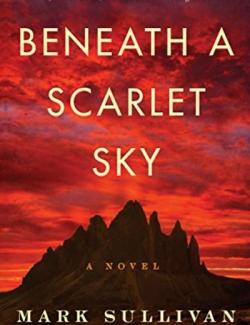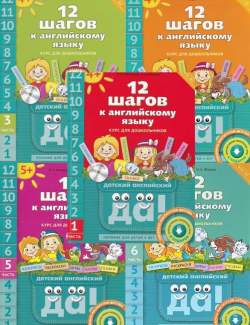(×òîáû ïåðåâîäèòü ñëîâà íà ðóññêèé ÿçûê è äîáàâëÿòü â ñëîâàðü äëÿ èçó÷åíèÿ, ùåëêàåì ìûøêîé íà íóæíîå ñëîâî).
For the eight thousand Italian Jews who could not be saved. For the millions taken slave by the Nazi war machine, and the countless who did not make it home. And for Robert Dehlendorf, who heard the tale first, and rescued me. Love conquers all things. —Virgil PREFACE In early February 2006, I was forty-seven and at the lowest point of my life. My younger brother, who was also my best friend, had drunk himself to death the summer before. I’d written a novel no one liked, was embroiled in a business dispute, and stood on the brink of personal bankruptcy. Driving alone on a Montana highway at dusk, I started thinking about my insurance policies and realized that I was worth much more to my family dead than alive. I contemplated driving into a freeway abutment. It was snowy, and the light was low. No one would have suspected suicide. But then, in my mind’s eye, I saw my wife and sons in the swirling snow and had a change of heart. When I pulled off the highway, I was shaking uncontrollably. On the verge of a breakdown, I bowed my head and begged God and the Universe for help. I prayed for a story, something greater than myself, a project I could get lost in. Believe it or not, that very same evening, at a dinner party in Bozeman, Montana—of all places—I heard the snippets of an extraordinary, untold tale of World War II with a seventeen-year-old Italian boy as its hero. My first reaction was that the story of Pino Lella’s life in the last twenty-three months of the war could not possibly be true. We would have heard it before. But then I learned that Pino—pronounced pea-no—was still alive some six decades later and back in Italy after nearly thirty years in Beverly Hills and Mammoth Lakes, California. I called him. Mr. Lella was very reluctant to talk to me at first. He said he was no hero, more a coward, which only intrigued me further. Finally, after several more phone calls, he agreed to see me if I came to Italy. I flew to Italy and spent three weeks with Pino in an old villa in the town of Lesa on Lake Maggiore, north of Milan. At the time, Pino was seventy-nine but big, strong, handsome, charming, funny, and often evasive. I listened to him for hours on end while he summoned up the past. Some of Pino’s memories were so vivid they appeared in the air in front of me. Others were more dimly lit and had to be coaxed into clarity through repeated questioning. Certain events and characters he clearly avoided, and others he seemed to dread talking about at all. When I pressed the old man about these painful times, he recounted tragedies that reduced us both to sobbing. During that first trip, I also talked to Holocaust historians in Milan and interviewed Catholic priests and members of the partisan resistance. I visited every major scene with Pino. I skied and climbed in the Alps to better understand the escape routes. I held the old man when he collapsed in grief in the Piazzale Loreto, and I watched the agony of his loss ripple through him in the streets around the Castello Sforzesco. He showed me where he last saw Benito Mussolini. In the great cathedral of Milan, the Duomo, I saw his shaking hand as he lit a candle for the dead and the martyred. Through it all, I listened to a man looking back at two years of his extraordinary life, growing up at seventeen, growing old at eighteen, the ups and downs, the trials and triumphs, the love and the heartbreak. My personal problems, and my life in general, seemed small and insignificant in comparison to what he’d endured at an unfathomably young age. And his insight into life’s tragedies gave me a new perspective. I began to heal, and Pino and I became fast friends. When I returned home, I felt better than I had in years. That trip led to four more over the course of the following decade, allowing me to do research on Pino’s tale between the writing of other books. I consulted with staff at Yad Vashem, Israel’s main Holocaust remembrance and education center, and with historians in Italy, Germany, and the United States. I spent weeks in the war archives in those three countries and in the United Kingdom. I interviewed the surviving eyewitnesses—at least those I could find—to corroborate various events in Pino’s story, as well as the descendants and friends of those long dead, including Ingrid Bruck, the daughter of the mysterious Nazi general who complicates the heart of the tale. Wherever possible, I have stuck to the facts gleaned from those archives, interviews, and testimonies. But I learned quickly that due to the widespread burning of Nazi documents as World War II ground to a close, the paper trail surrounding Pino’s past was scattered at best. I was also hampered by a kind of collective amnesia concerning Italy and Italians after the war. Legions of books have been written about D-day, the Allied campaigns across western Europe, and the efforts of brave souls who risked their lives to save Jews in other European countries. But the Nazi occupation of Italy and the Catholic underground railroad, which was formed to save the Italian Jews, have received scant attention. Some 60,000 Allied soldiers died fighting to free Italy. Some 140,000 Italians died during Nazi occupation. And still, so little has been written about the battle for Italy, historians have taken to calling it the “Forgotten Front.” Much of the amnesia was caused by Italians who’d survived. As one old partisan fighter told me, “We were still young and wanted to forget. We wanted to put the terrible things we’d experienced behind us. No one talks about World War Two in Italy, so no one remembers.” Due to the document burning, the collective amnesia, and the death of so many characters by the time I learned of the story, I have been forced in places to construct scenes and dialogue based solely on Pino’s memory decades later, the scant physical evidence that remains, and my imagination fueled by my research and informed suspicions. In certain instances, I have also comingled or compressed events and characters for the sake of narrative coherence and have fully dramatized incidents that were described to me in much more truncated forms. As a result, then, the story you are about to read is not a work of narrative nonfiction, but a novel of biographical and historical fiction that hews closely to what happened to Pino Lella between June 1943 and May 1945. PART ONE NONE SHALL SLEEP Chapter One June 9, 1943 Milan, Italy Like all the pharaohs, emperors, and tyrants before him, Il Duce had seen his empire rise only to crumble. Indeed, by that late-spring afternoon, power was bleeding from Benito Mussolini’s grasp like joy from a young widowed heart. The Fascist dictator’s battered armies had retreated from North Africa. Allied forces were poised off Sicily. And every day, Adolf Hitler was sending more troops and supplies south to fortify the boot of Italy. Pino Lella knew all this from BBC reports he listened to on his shortwave radio nightly. He’d seen with his own eyes the rising numbers of Nazis everywhere he went. But as he strolled through the medieval streets of Milan, Pino was blissfully ignoring the forces of conflict spiraling his way. World War II was a news dispatch, nothing more, listened to and gone in the very next moment—replaced by thoughts of his three favorite subjects: girls and music and food. He was only seventeen after all, 1.85 meters tall, seventy-five kilograms, long and gangly, with big hands and feet, hair that defied taming, and enough acne and awkwardness that none of the girls he’d asked to the movies had agreed to accompany him. And yet, as was his nature, Pino remained undeterred. He strode confidently with his friends onto the piazza in front of the Duomo, the Basilica di Santa Maria Nascente, the grand Gothic cathedral that lies at the very center of Milan. “I am going to meet a beautiful girl today,” Pino said, wagging his finger at the scarlet, threatening sky. “And we are going to fall in mad, tragic love and go on grand adventures with music and food and wine and intrigue every day, all day long.” “You live in a fantasy,” said Carletto Beltramini, Pino’s best friend. “I do not,” Pino sniffed. “Sure you do,” said Pino’s brother, Mimo, who was two years younger. “You fall in love with every pretty girl you see.” “But none of them loves Pino back,” said Carletto. A moon-faced kid with a slight frame, he was much shorter than Pino. Mimo, who was shorter still, said, “It’s true.” Pino dismissed them both. “You are clearly not romantics.” “What are they doing over there?” Carletto asked, pointing at crews of men working outside the Duomo. Some were placing wooden cutouts in the cavities where the cathedral’s stained-glass windows normally hung. Others were transferring sandbags from lorries to a growing wall around the base of the cathedral. Still more were erecting spotlights under the watchful eyes of a knot of priests who stood near the cathedral’s central double doors. “I’ll go find out,” Pino said. “Not before I do,” his little brother said, and took off toward the workers. “Everything’s a competition with Mimo,” Carletto said. “He needs to learn to calm down.” Pino laughed, then said over his shoulder, “If you know how he can do that, tell my mother.” Looping past the laborers, Pino went straight to the priests and tapped one on the shoulder. “Excuse me, Father.” The cleric, in his midtwenties, was as tall as Pino but heavier. He turned, looked at the teen from the ground up—seeing his new shoes, the gray linen pants, the crisp white shirt, and a green foulard tie his mother had given him for his birthday—and then stared intently into Pino’s eyes as if he could look inside his head and know his sinful teenage thoughts. He said, “I’m in seminary. Not ordained. No collar.” “Oh, oh, I’m sorry,” Pino said, intimidated. “We just wanted to know why you’re putting up the lights.” Before the young seminarian could answer, a knobby hand appeared at his right elbow. He moved aside to reveal a short, lean priest in his fifties wearing white robes and a red skullcap. Pino knew him in an instant and felt his stomach fall as he dropped to one knee before the cardinal of Milan. “My Lord Cardinal,” Pino said, head bowed. The seminarian said sternly, “You address him as ‘Your Eminence.’” Pino looked up, confused. “My British nanny taught me to say ‘My Lord Cardinal’ if I ever met a cardinal.” The severe younger man’s face turned positively stony, but Ildefonso Cardinal Schuster laughed softly and said, “I think he’s right, Barbareschi. In England, I’d be addressed as ‘Lord Cardinal.’” Cardinal Schuster was both famous and powerful in Milan. As the Catholic leader of northern Italy, and as a man who had the ear of Pope Pius XII, the cardinal was in the newspapers often. Pino thought Schuster’s expression the most indelible thing about him; his smiling face spoke of kindness, but his eyes held the threat of damnation. Clearly miffed, the seminarian said, “We’re in Milan, Your Eminence, not London.” “It doesn’t matter,” Schuster said. He put his hand on Pino’s shoulder and told him to rise. “What’s your name, young man?” “Pino Lella.” “Pino?” “My mother used to call me Giuseppino,” Pino said, struggling to his feet. “The ‘Pino’ part stuck.” Cardinal Schuster looked up at “Little Joseph” and laughed. “Pino Lella. That is a name to remember.” Why someone like the cardinal would say something like that confused Pino. In the silence that followed, Pino blurted out, “I’ve met you before, My Lord Cardinal.” That surprised Schuster. “Where was that?” “At Casa Alpina, Father Re’s camp above Madesimo. Years ago.” Cardinal Schuster smiled. “I remember that visit. I told Father Re that he was the only priest in Italy with a cathedral grander than the Duomo and St. Peter’s. Young Barbareschi here is going up to work with Father Re next week.” “You’ll like him and Casa Alpina,” Pino said. “The climbing is very good there.” Barbareschi actually smiled. Pino bowed uncertainly and started to back away, which seemed to amuse Cardinal Schuster all the more. He said, “I thought you were interested in the lights?” Pino stopped. “Yes?” “They’re my idea,” Schuster said. “The blackout begins tonight. Only the Duomo will be lit from now on. I pray that the bomber pilots will see it and be so awed by its beauty that they choose to spare it. This magnificent church took almost five hundred years to build. It would be a tragedy to see it gone in a night.” Pino peered up the elaborate face of the massive cathedral. Built of pale pinkish Candoglia marble, with scores of spires, balconies, and pinnacles, the Duomo seemed as frosted, grand, and illusory as the Alps in winter. He adored skiing and climbing in the mountains almost as much as music and girls, and seeing the church always took him to high country in his mind. But now the cardinal believed the cathedral and Milan were threatened. For the first time, the possibility of an aerial attack seemed real to Pino. He said, “So we will be bombed?” “I pray it does not happen,” Cardinal Schuster said, “but a prudent man always prepares for the worst. Good-bye, and may your faith in God keep you safe in the days ahead, Pino.” The cardinal of Milan walked away, leaving Pino feeling awed when he returned to Carletto and Mimo, each of whom looked equally thunderstruck. “That was Cardinal Schuster,” Carletto said. “I know,” Pino said. “You were talking to him a long time.” “Was I?” “Yes,” his little brother said. “What did he tell you?” “That he’d remember my name, and that the lights are to keep the bombers from blowing up the cathedral.” “See?” Mimo said to Carletto. “I told you.” Carletto eyed Pino suspiciously. “Why would Cardinal Schuster remember your name?” Pino shrugged. “Maybe he liked the sound of it. Pino Lella.” Mimo snorted. “You do live in a fantasy world.” They heard thunder as they left Piazza Duomo, crossed the street, and walked beneath the grand archway into the Galleria, the world’s first covered shopping mall—two wide, intersecting walkways lined with shops and ordinarily covered with an iron-and-glass dome. By the time the three boys went in that day, the glass plates had been removed, leaving only the superstructure, which threw a web of rectangular shadows across the market scene. As the thunder got closer, Pino saw worry in many faces on the streets of the Galleria, but he did not share their concern. Thunder was thunder, not a bomb exploding. “Flowers?” called a woman at a cart of freshly cut roses. “For your girlfriend?” Pino said, “When I find her, I will come back.” “You might wait years for that to happen, signora,” Mimo said. Pino took a swing at his little brother. Mimo dodged it and took off, leaving the Galleria and emerging into a piazza graced by a statue of Leonardo da Vinci. Beyond the statue, on the other side of the street and trolley tracks, the doors to the Teatro alla Scala had been flung open to air out the famous opera hall. The strains of violins and cellos being tuned and a tenor practicing scales floated out. Pino kept up the chase, but then he noticed a pretty girl—black hair, creamy skin, and flashing dark eyes. She was making her way across the piazza, heading toward the Galleria. He skidded to a halt and watched her. Flooded with longing, he was unable to speak. After she passed, Pino said, “I think I’m falling in love.” “Falling on your face maybe,” said Carletto, who’d walked up behind him. Mimo circled back to them. “Someone just said the Allies will be here by Christmas.” “I want the Americans to come to Milan sooner than that,” Carletto said. “Me, too,” Pino agreed. “More jazz! Less opera!” Taking off in a sprint, he leaped over a vacant bench and onto a curved metal railing that protected the statue of da Vinci. He slid neatly on the smooth surface for a short distance before jumping off the other side and landing like a cat. Never to be outdone, Mimo tried the same trick, but he crashed to the ground in front of a dark-haired, heavyset woman in a floral print dress. She looked to be in her late thirties, early forties. She carried a violin case and wore a broad blue straw hat against the sun. The woman was so startled she almost dropped her violin case. She clutched it to her bosom angrily as Mimo moaned and held his ribs. “This is Piazza Della Scala!” she scolded. “Honoring the great Leonardo! Have you no respect? Go and play your childish games somewhere else.” “You think we’re children?” Mimo said, puffing out his chest. “Little boys?” The woman looked beyond him and said, “Little boys who do not understand the real games played around them.” Dark clouds had begun to roll in, dimming the scene. Pino twisted and saw a large black Daimler-Benz staff car rolling down the street that separated the piazza from the opera house. Red Nazi flags flew on either fender. A general’s flag fluttered on the radio antenna. Pino saw the silhouette of the general, sitting ramrod straight in the backseat. For some reason the image gave him the chills. When Pino turned around, the violinist was already moving away, head up, defiant as she crossed the street behind the Nazi staff car and marched into the opera house. As the boys moved on, Mimo limped along while rubbing his right hip and complaining. But Pino was barely listening. A tawny-blond woman with slate-blue eyes was coming down the sidewalk right at them. He guessed her to be in her early twenties. She was beautifully put together, with a gentle nose, high cheekbones, and lips that curled naturally into an easy smile. Svelte and of medium height, she wore a yellow summer dress and carried a canvas shopping bag. She turned off the sidewalk and entered a bakery just ahead. “I’m in love again,” Pino said, both palms over his heart. “Did you see her?” Carletto snorted. “Don’t you give up?” “Never,” Pino said, trotting to the bakery window and looking inside. The woman was stuffing loaves of bread into her bag. He saw she wasn’t wearing a ring on her left hand, so he waited for her to pay and come out. When she did, he stepped in front of her, put his hand over his heart, and said, “I’m sorry, signorina. I was overcome by your beauty and had to meet you.” “Listen to you,” she scoffed as she maneuvered around him and kept walking. As she’d passed, Pino smelled her female-and-jasmine scent. It was intoxicating, like nothing he’d ever smelled before. He hurried after her, saying, “It is true. I see many beautiful ladies, signorina. I live in the fashion district, San Babila. Many models.” She gave him a sidelong glance. “San Babila is a very fine place to live.” “My parents own Le Borsette di Lella, the purse store. Do you know it?” “My—my employer bought a purse there just last week.” “Yes?” Pino said, delighted. “So you see I come from a reputable family. Would you like to see a movie with me tonight? You Were Never Lovelier is playing. Fred Astaire. Rita Hayworth. Dancing. Singing. So elegant. Like you, signorina.” She finally turned her head to look over at him with those piercing eyes. “How old are you?” “Almost eighteen.” She laughed. “You’re kind of young for me.” “It’s just a movie. We go as friends. I am not too young for that, am I?” She didn’t say anything, just kept on walking. “Yes? No?” Pino said. “There’s a blackout tonight.” “It will still be light when the show starts, and afterward I will walk you home safe and sound,” Pino assured her. “I can see like a cat at night.” She said nothing for several steps, and Pino’s heart sank. “Where is this movie playing?” she asked. Pino gave her the address and said, “You will meet me there, yes? Seven thirty outside the ticket booth?” “You are kind of funny, and life is short. Why not?” Pino grinned, put his hand to his chest, and said, “Until then.” “Until then,” she said. She smiled, then crossed the street. Pino watched her go, feeling triumphant and breathless until he realized something when she turned to wait for the oncoming street trolley and looked back at him in amusement. “Signorina, forgive me,” he yelled to her, “but what is your name?” “Anna,” she called back. “I am Pino!” he cried. “Pino Lella!” The trolley screeched to a halt, drowning out his last name and blocking her from his view. When the trolley rolled on, Anna was gone. “She’ll never come,” said Mimo, who’d been hustling along behind them the entire time. “She just said it to get you to stop following her.” “Of course she will come,” Pino said, before looking to Carletto, who had also followed them. “You saw it in her eyes, Anna’s eyes, didn’t you?” Before his brother and his friend could respond, lightning flashed, and the first drops of rain fell, plump and growing fatter. They all began to run. “I’m going home!” Carletto cried, and veered off. Chapter Two The skies opened up. The deluge began. Pino followed Mimo, sprinting toward the fashion district, getting drenched and not caring. Anna was going to the movies with him. She’d said yes. It made him almost delirious. The brothers were soaked, and lightning was striking by the time they dodged into Valigeria Albanese, Albanese Luggage, their uncle’s store and factory in a rust-colored building at
Èíôîðìàöèÿ
Ïîñåòèòåëè, íàõîäÿùèåñÿ â ãðóïïå Ãîñòè, íå ìîãóò îñòàâëÿòü êîììåíòàðèè ê äàííîé ïóáëèêàöèè.

















